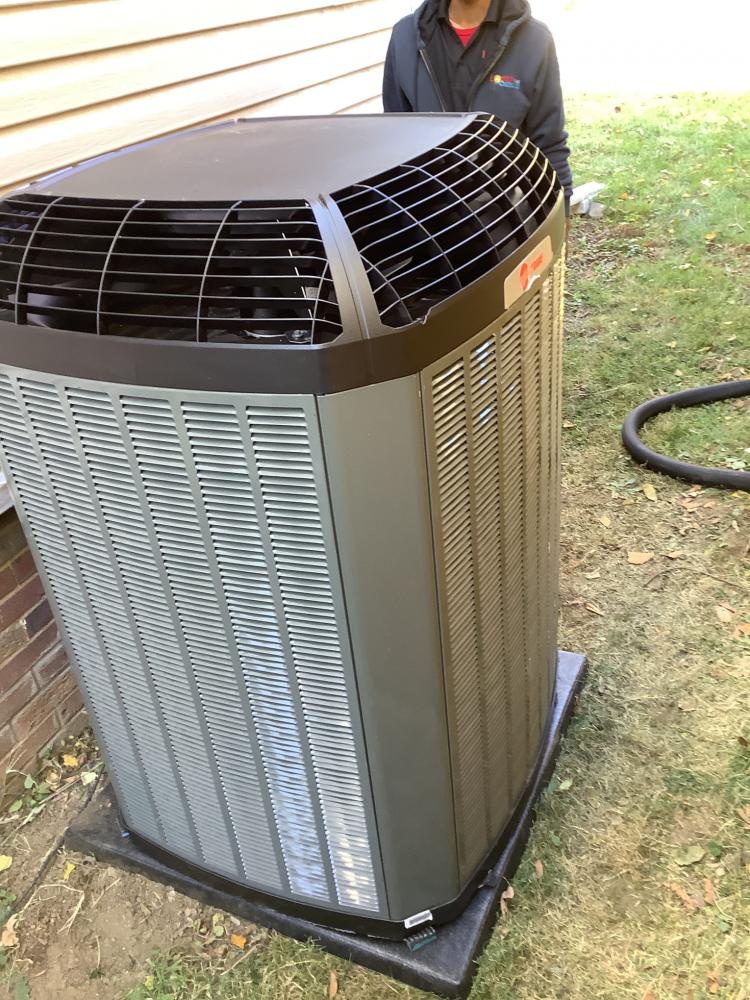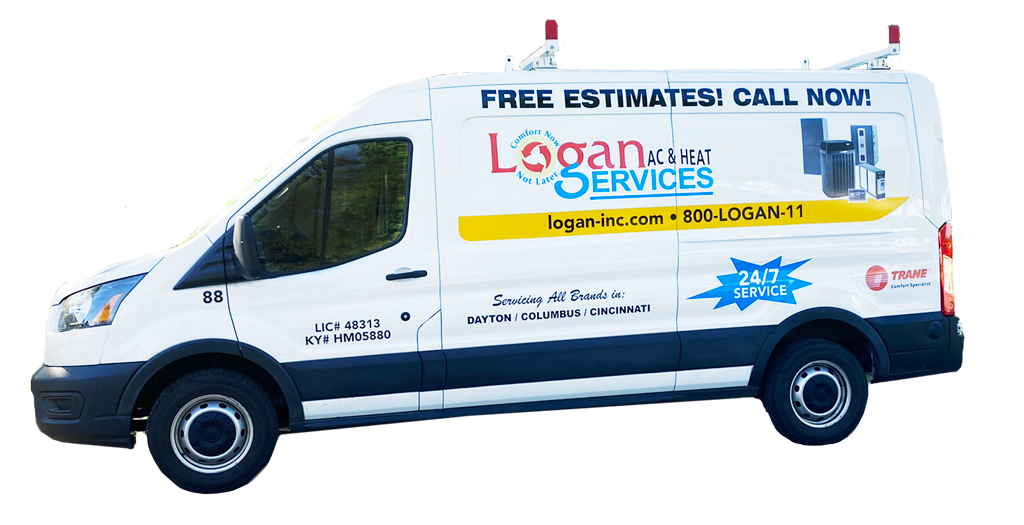One question we get frequently from homeowners is, “do you recommend covering an air conditioning unit?”
You may have heard different suggestions on this topic. There is one side to the story which encourages you to cover your air conditioner, stating that a protective barrier on the A/C unit can help ward off unwanted debris, such as leaves, seeds, twigs, and other seasonal elements that can impact the internal condition of your A/C unit.
The other side of the argument, which is where we and many other experts stand, warns that using AC covers can be potentially more detrimental to its operation and life span than leaving it exposed. When you wrap/cover an air conditioner, you run the risk of your air conditioner rusting and your coils corroding. Because moisture and condensation can become trapped within the unit when it is covered, a tarped A/C often causes more harm than good.
For these reasons, we do not recommend covering an air conditioner.
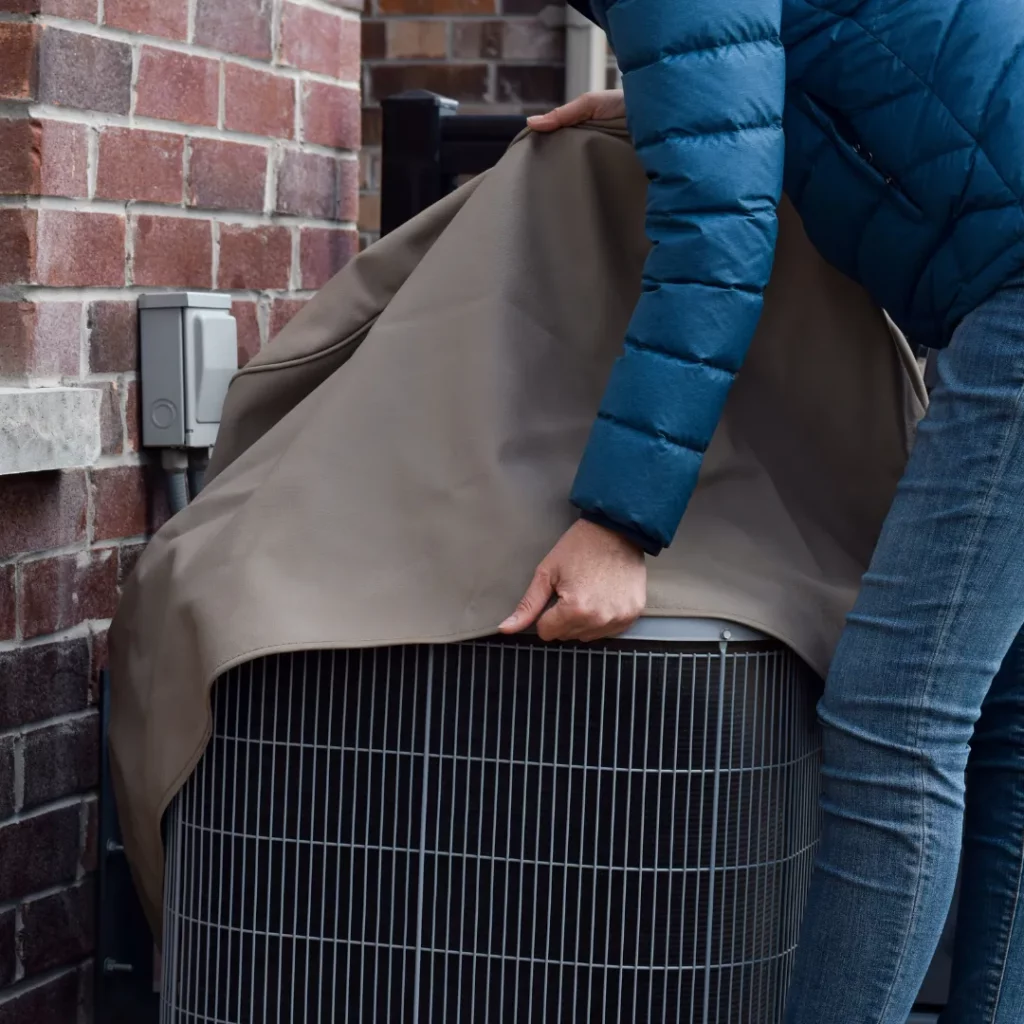
This recommendation goes for all products including:
- Basic AC covers
- Mobile home air conditioner covers,
- Air conditioner custom cap covers
- Ductless mini split covers
- AC window unit covers
- or other AC covers
Watch our video below to hear from our expert, Craig, as to why covering your A/C is not recommended.
Take these two arguments into consideration when you are deciding whether or not to cover your air conditioner, then evaluate the type of outdoor unit that you have:
Air Conditioners With No Protective Top
If your air conditioner looks like the above photo with an open top, it is more common to think that you should want to cover it. While it is not necessary and we advise against buying a full cover for the unit, if you are adamant about adding protection, you could lay a barrier, such as a board, on top of it to help protect the top of the unit from collecting debris. Leave the sides of the unit unwrapped so that air can move through the system, keeping it dry.
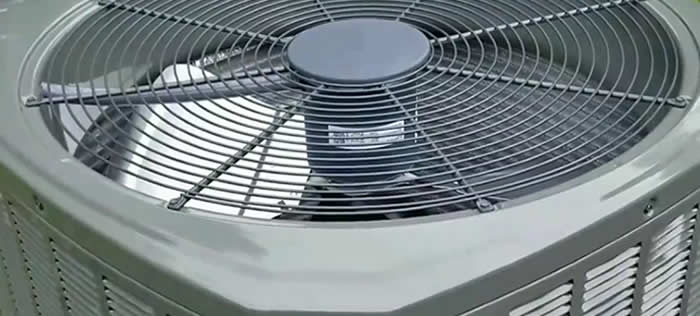
Air Conditioners With A Protective Top
If your air conditioner has a plastic top, like the Trane WeatherGuard Top above, rest assured that it is built to project the top of the system from collecting debris and other winter elements. Newer air conditioning systems that are built this way have taken into consideration the fall/winter conditions and are made to endure the season with no additional covering.
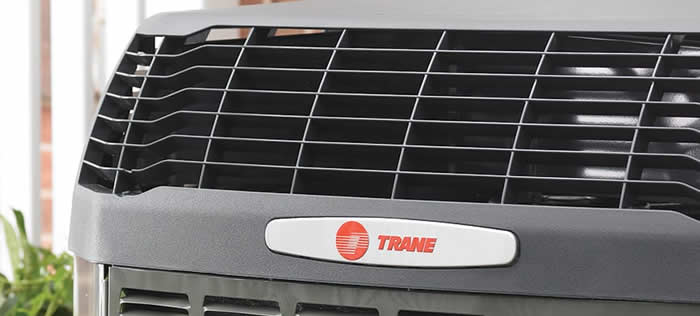
Heat Pump Systems that Heat and Cool
If your outdoor unit is a heat pump, which means it functions as an air conditioner in the summer and can also supply heat to your home in the fall and mild winter temperatures, do not cover the system. Depending on the settings of your system, if the temperature outside goes above 35+ degrees, that heat pump is likely to be operating, and having it covered would be harmful to the unit.
If you have heating needs throughout the rest of the winter season, trust the fast, friendly team at Logan A/C & Heat Services!
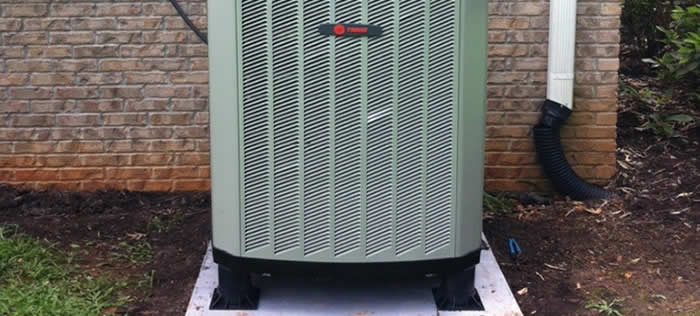
What About Air Conditioner Enclosures?
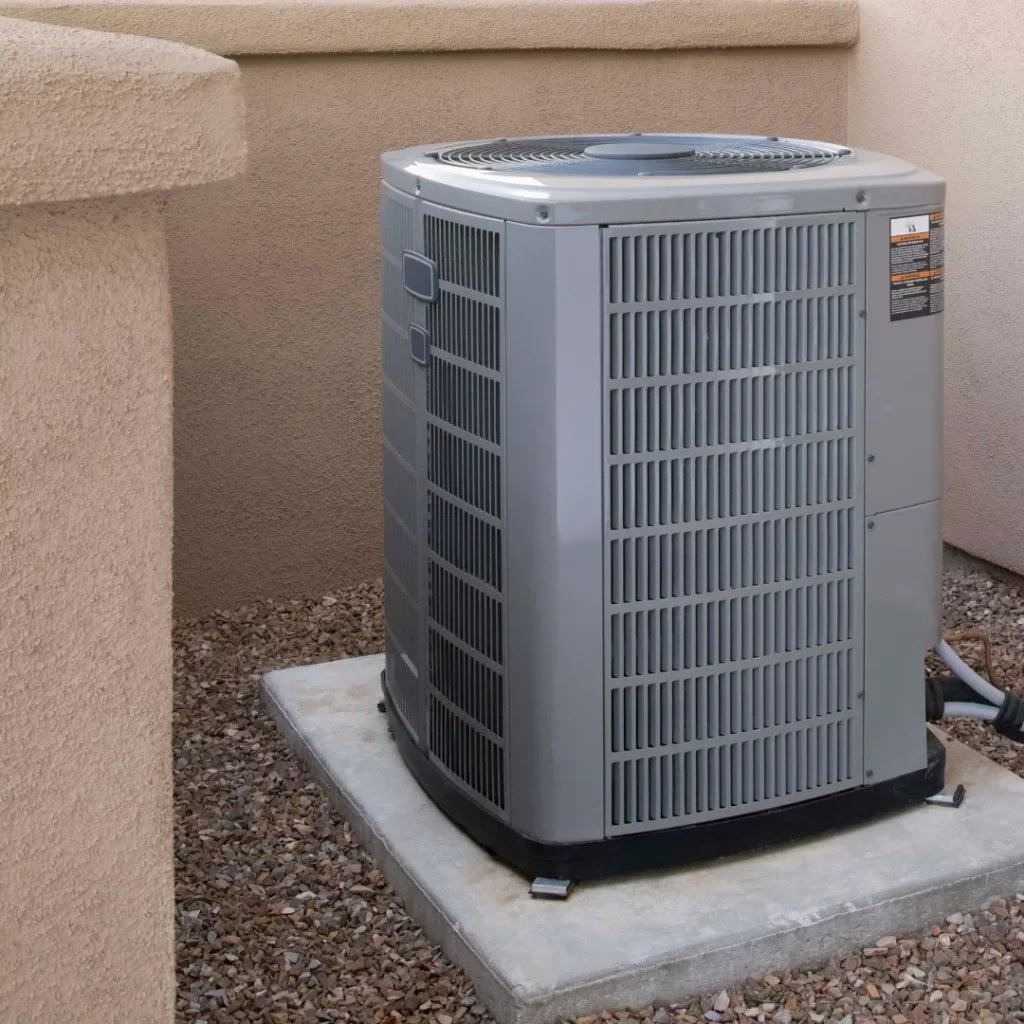
If your goal is to hide your air conditioner, without disrupting its function, then you may want to consider an air conditioning enclosure rather than an AC cover. Air conditioning enclosures for hiding an outdoor unit can be a practical solution for homeowners who want to maintain an aesthetically pleasing outdoor space. There are various methods available to achieve this, each with its own pros and cons.
- Outdoor Privacy Panels: For renters or those seeking a temporary solution, outdoor privacy panels offer a quick and versatile option. These panels can be used to hide the air conditioning unit without making permanent changes to the property. However, they may not be as wind- or weather-resistant and may require more frequent replacement.
- Planting Trees or Bushes: Creating a living fence by planting trees or bushes can blend the air conditioner unit seamlessly into a garden or backyard. This sustainable option allows for airflow and relatively easy accessibility. However, it may take time for the plants to become established and may require regular upkeep.
- Trellis with Vines: Using a trellis and training vines to grow can provide an attractive solution. By choosing vining plants suitable for the region, airflow can be maintained while blocking the view of the unit. However, these plants may require more extensive upkeep.
- Pre-made Enclosures: For those who prefer a hassle-free option, pre-made air conditioner enclosures are available on the market. These enclosures are specifically designed to house air conditioning units, requiring minimal effort for installation. However, the selection may be limited, and the cost can vary.
- Lattice Panels: Using lattice panels can create a box-like enclosure around the air conditioner unit. This option provides plenty of airflow and is cost-effective compared to traditional fencing. However, it may require some time and effort for the do-it-yourself installation.
- Matching Fencing Panels: If consistency is desired, using fencing panels that match the existing fence can be a suitable option. It’s important to ensure proper airflow and consider the style of the fence, as it may limit airflow. The cost may vary depending on the style and size of the fencing panels.
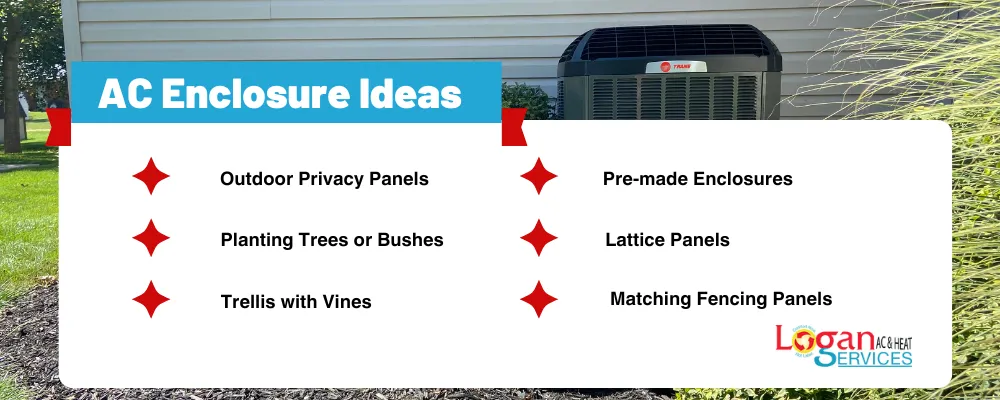
When considering any of these methods, it’s essential to consult the manufacturer’s recommendations to ensure proper airflow and access around the air conditioning unit. By employing one of these strategies, homeowners can maintain a visually pleasing outdoor space while ensuring the functionality and accessibility of their air conditioning system.
FAQs
Is it a good idea to cover your AC?
Covering your AC unit is not recommended. AC units are designed to withstand outdoor conditions and are built to be durable and weather-resistant. Covering the unit can trap moisture inside, leading to the growth of mold and mildew. It can also provide a shelter for pests, like rodents, which may damage the unit. Covering the AC can also restrict airflow and hinder the unit’s efficiency, potentially leading to performance issues and higher energy consumption. If you live in an area with harsh winter conditions or are concerned about debris, it’s better to use a specialized AC cover approved by the manufacturer that still allows for proper airflow.
Is it good to cover your air conditioner in the winter?
It is not necessary to cover your air conditioner in the winter. Modern air conditioners are designed to withstand outdoor weather conditions and are built to be durable. In fact, covering your air conditioner can potentially cause more harm than good.
What barrier can I put on top of my AC unit?
Putting any physical barriers on top of your AC unit is generally not recommended. The unit needs unrestricted airflow in order to function properly, and adding barriers can impede the airflow and reduce its efficiency. Additionally, placing anything on top of the unit can potentially cause damage or disrupt the balance of the unit, leading to costly repairs. It is best to keep the area surrounding your AC unit clear of any obstacles to ensure optimum performance.

Call Logan Services of Dayton, Columbus, and Cincinnati, OH today at (866) 259-3509!
Get A Free Estimate | Schedule A Service Call | Request Maintenance

